The pearl of charity in our hands today– Lima (Peru), 25-27 October 2019
By Fr. Pietro Magliozzi
Within a context of the culture of encounter wanted by Pope Francis, Marie Christine Brocherieux, the President of the international Lay Camillian Family (LCF), opened the deliberations of the Sixth Latin American Meeting of the LCF, which has continued its journey of growth after the meetings of Rome (2018: the international LCF; 2019: the Camillian Charismatic Family), building bridges of real dialogue in the Camillian world and with gratitude towards the Camillian Blesseds and Saints who have handed down this charism to us. Indeed, an innovation of this meeting of the continent of Latin America was the presence and participation of the international governing body of the LCF, with Anita Ennis and Maria Bako taking part in all of the deliberations.
Magda Lazarte, the President of the LCF of Peru, welcomed about 90 participants from Mexico, Colombia, Ecuador, Peru, Argentina, Chile and Brazil.
The first paper was given by Isabel Calderon from Colombia, the former president of the international LCF, who animated with great skill, and guided, a large part of the meeting. The title of her paper was: ‘Following the Merciful Christ in the Way of St. Camillus’. This year is the twenty-fifth anniversary of the LCF (1994-2019) and one can clearly see the journey that has been made in faithfulness to a responsibility. Isabel organised her paper around the ‘call’ of Christ and St. Camillus to Camillian volunteers, a call not to be afraid and to love, a call that brands for always the life of a person and the kind of service that is provided. “We are children of a convert, Camillus” she said “and in answering ‘yes’ to this pearl of charity we choose to live as people who have been reanimated, we choose the best part of spirituality – charity”.
The deliberations of the work groups then followed and they analysed the vocation to be the Lay Camillian Family, faithfulness to this vocation, the essence of being a member of the LCF and the ways and strategies by which to spread the LCF today in Latin America. On this point original and classic ideas were shared, such as: personally inviting patients, their family relatives and health-care workers in hospitals to belong to the LCF; organising courses in pastoral care in health; retreats on Camillian spirituality and in this area invitations to parishes to publicise the LCF above all amongst extraordinary ministers of communion; itinerant pastoral care in health; suggesting voluntary work to young people in colleges; organising Camillian events (solidarity lunches, festivals, the World Day of the Sick); and a better use of social networks and the mass media (radio, TV with interviews, periodicals, You Tube and facebook). In all these settings one can invite people with words, but even more by example, to look at the beauty of helping and serving those who suffer.
Between the papers there were the contributions of the various countries who were taking part in the meeting. These used power-point and videos that demonstrated all of the riches of activities and good practices at the level of pastoral care, and above all the journey that has been accomplished over the last twenty-five years: Colombia, born in the 1980s with 200 members in five cities; Chile, born in 2008 with 30 members in two cities; Mexico, born in 2002 with 35 people in one city; Ecuador, born in the year 2000 with 23 members in one city; Argentina, with a long tradition and now with the originality of the membership of young people in the LCF; Brazil, born in 1971 with its 120 members in five cities; Peru, with 69 people in nine groups.
The second paper was by Fr. Mateo Bautista. Its title was ‘The Prophetic Dimension in Pastoral Care for Mourning’. Fr. Mateo said that there is a need for prophecy in 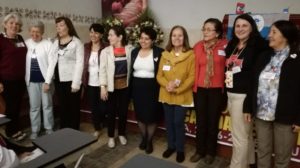 order to innovate practices in pastoral care and not to be satisfied with always repeating the same things. He made people think, interacting with those taking part, on what the prophecy of St. Camillus meant in the crisis of hospitals in the sixteenth century and what the prophecy of the LCF means in the world of suffering of the twenty-first century. As regards this prophecy, this Camillian father showed how St. Camillus lived in permanent mourning (he was an orphan) and comes down to us a wounded healer who knew how to live mourning and to teach people to experience it in a healthy way, that is to say as a source of conversion.
order to innovate practices in pastoral care and not to be satisfied with always repeating the same things. He made people think, interacting with those taking part, on what the prophecy of St. Camillus meant in the crisis of hospitals in the sixteenth century and what the prophecy of the LCF means in the world of suffering of the twenty-first century. As regards this prophecy, this Camillian father showed how St. Camillus lived in permanent mourning (he was an orphan) and comes down to us a wounded healer who knew how to live mourning and to teach people to experience it in a healthy way, that is to say as a source of conversion.
The Daughter of St. Camillus, Sr. Haida Hechevarrìa, gave a paper on ‘Drinking at the Source of our Charism’. Everything begins when a humble person feels the need for a relationship, a living encounter with the merciful Christ; this is drinking, this is the charismatic gift. Hence the responsibility that led St. Camillus, and must lead every member of the Lay Camillian Family, to reform the world of health and health care with the divine touch of an infinite, patient, powerful, ardent, generous, original and creative love.
The group work that followed allowed an examination of the ‘source’ at which we drink today as the LCF that enables us to feel the grace of receiving a divine gift (the Camillian vocation) that transforms life. Through this gift, we can project ourselves into the future and present the love of the merciful Christ in today’s world. The answer to this last question by the groups was to offer to the sick, families and health-care workers a more meaningful approach, prayers and blessings, with an encouragement of the sacraments.
The last paper was given by Veronica del Fierro, a Chilean lay woman, on the subject ‘Doing Charity, you Never Go Wrong’. It is important to look at the truth of charity in all of its dimensions. Charity is not only having compassion for those who suffer and engaging in acts of service for them: it is also living ethics (the dignity of the person in front of you) and thinking about how I, the LCF, exercise – starting from my Christian ‘truth’ – charity towards those who suffer; in other words, it is important to always clarify the deep reason for what is done as the LCF.
The work of the groups concentrated on the challenges that today’s world pose for practising disinterested and communal charity, charity in its foundational dimensions (St. Camillus and Mary). It also concentrated on the meaning of charity for our lives. Once again the contemporary relevance of the LCF in the world of health and health care of today (dehumanised, with a spiritual aridity, individualistic, economistic) was emphasised. The Lay Camillian Family has the task of being prophetic and going against the mainstream, giving to this world a more human face, one that is more centred on the ‘you’ of the other, and more ready to engage in dialogue and healing. As regards the Marian dimension, she observed that the LCF is female (98% of its members are women) and thus it is privileged in presenting this form of serving that was so loved by St. Camillus.
The three days of work unfolded with a balance between moments of study, of prayer and of being together, and with the harmony of convivial groups that had a clear sense of that belonging that has worked to make this Camillian small plant grow in the continent of Latin America. In all the papers it was clear that Camillian spirituality is the centre of all the contents that we have to conserve, develop and transmit. The end of the conference was marked by great happiness, expressed by each participating nation with a typical dance, an expression of Latin American ‘partying’, because charity, together with joy and peace in hearts, is the true sign that we are children of God and full of His Holy Spirit.
At the end of the meeting, Chile was appointed the host for the seventh meeting of the year 2002.



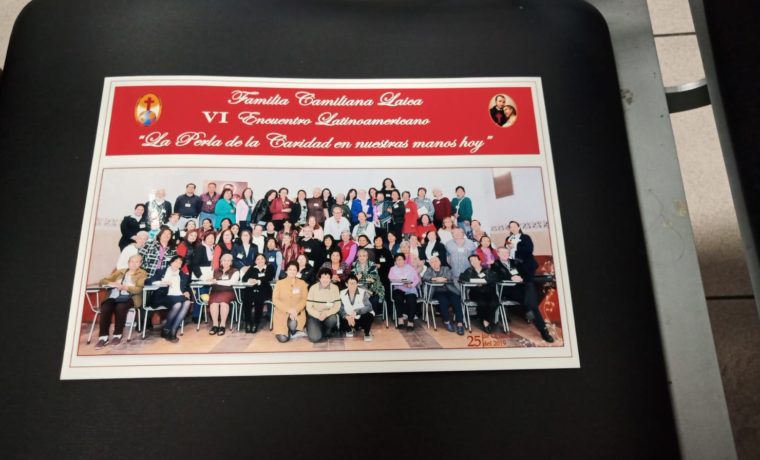
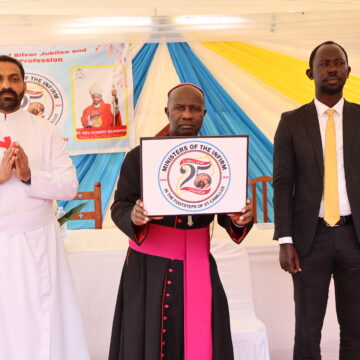
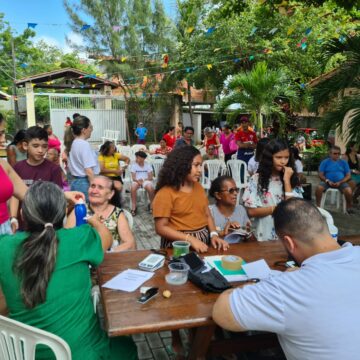
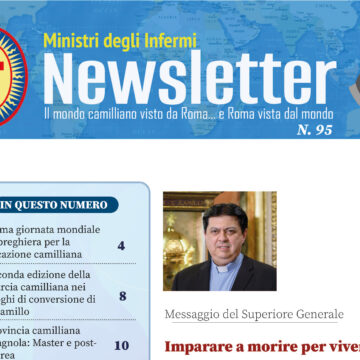
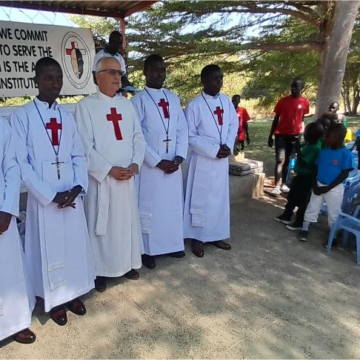
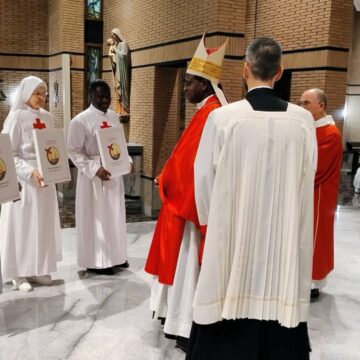

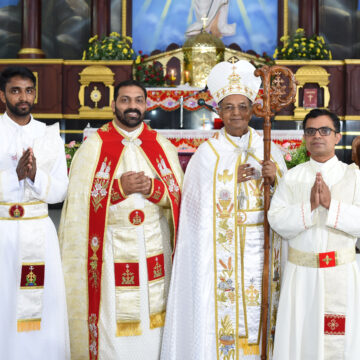
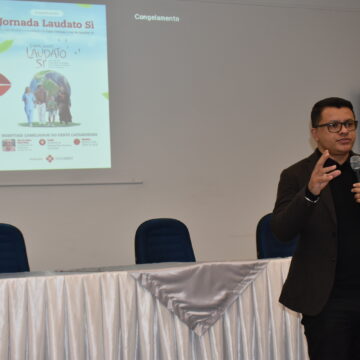
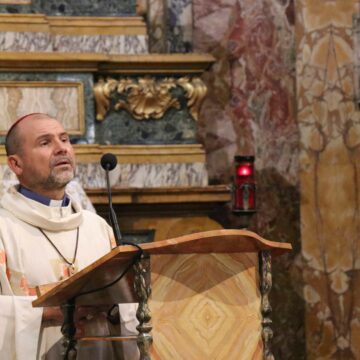
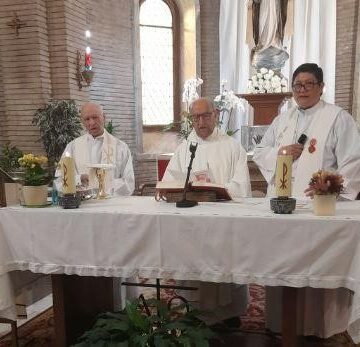
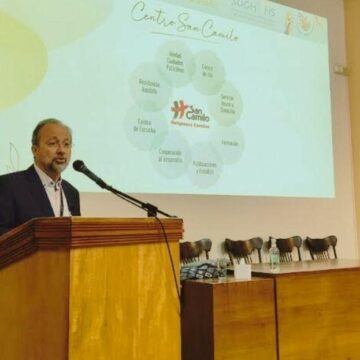
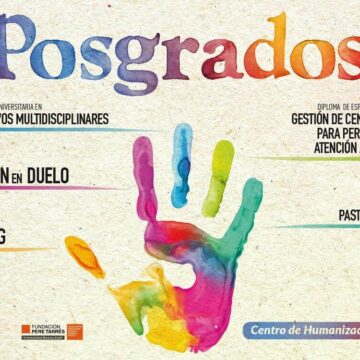
Camillians on Facebook
Camillians on Twitter
Camillians on Instagram